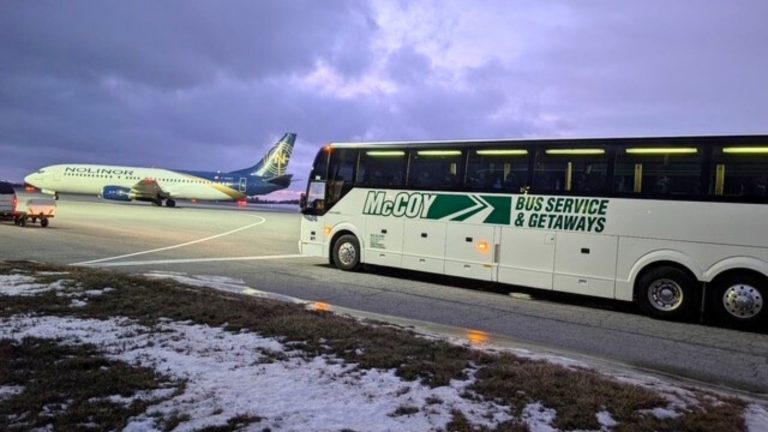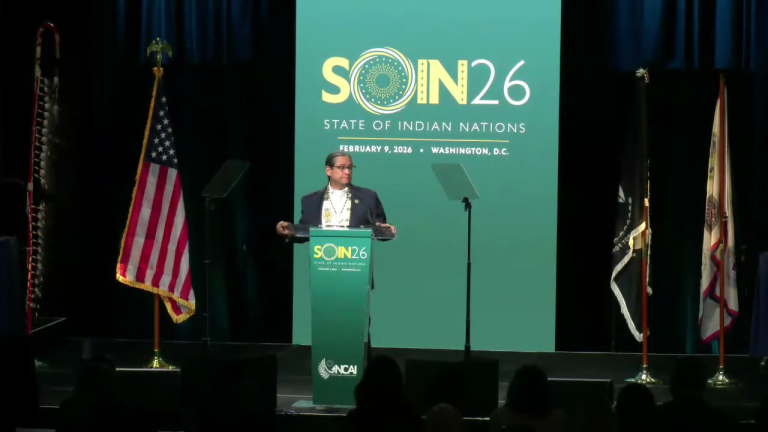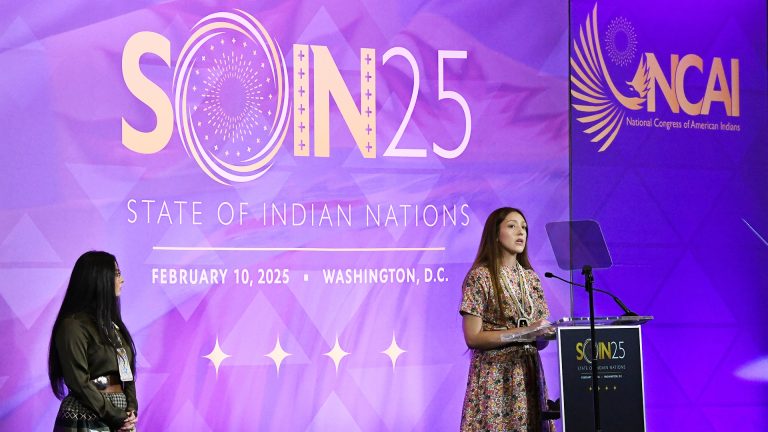By Christine Trudeau
This story is a collaboration with National Native News and the Solutions Journalism Network.
The Native American Rights Fund is outlining ways to avoid potential barriers for Native American as the nation prepares for the 2020 election. The recommendations in NARF’s new report address safety measures states are considering in light of the coronavirus pandemic.
NARF staff attorney Jacqueline DeLeon says an entirely vote-by-mail system would be a big problem in Indian Country, with the potential to disenfranchise many Native voters. DeLeon is co-author of NARFs recent voting rights report detailing multiple voting barriers that Native Americans face. Some states are considering a mail-only voting option to lower the chances of voters getting infected at polling places. DeLeon says inconsistent mail service makes that idea problematic for Native voters.
“The way mail works in Indian Country is if you’re getting mail at all, it’s likely gonna be at a post office through a post office box that you might be sharing with fifteen other people,” DeLeon said. “I mean, that is not unheard of just a lot of people sharing one post office box.”
She said that makes it easier for ballots to get misplaced or delivered to the wrong person, which could take weeks to correct.
In light of these and other challenges facing voters on access and safety, NARF is advocating specific changes that could help many Native voters, including maintaining in-person voting with the proper protections.
“An in-person voting option can be controlled,” DeLeon said. “You can have PPE sanitation practices; you can do curb-side voting. You can utilize Native community members and say that they’re the ones that are running the polls to reduce the introduction of outside people, and that kind of controlled environment is better than this hodge-podge way that people get mail in Indian Country now.”
NARF also recommends increasing the number of ballot collection boxes available through election day, allowing tribes to designate buildings to pick up and drop off ballots where they can also to register to vote if possible, allowing early voting hours for elders and people with compromised immunity, and creating a robust educational outreach campaign to tribal communities about any changes to the voting process.



